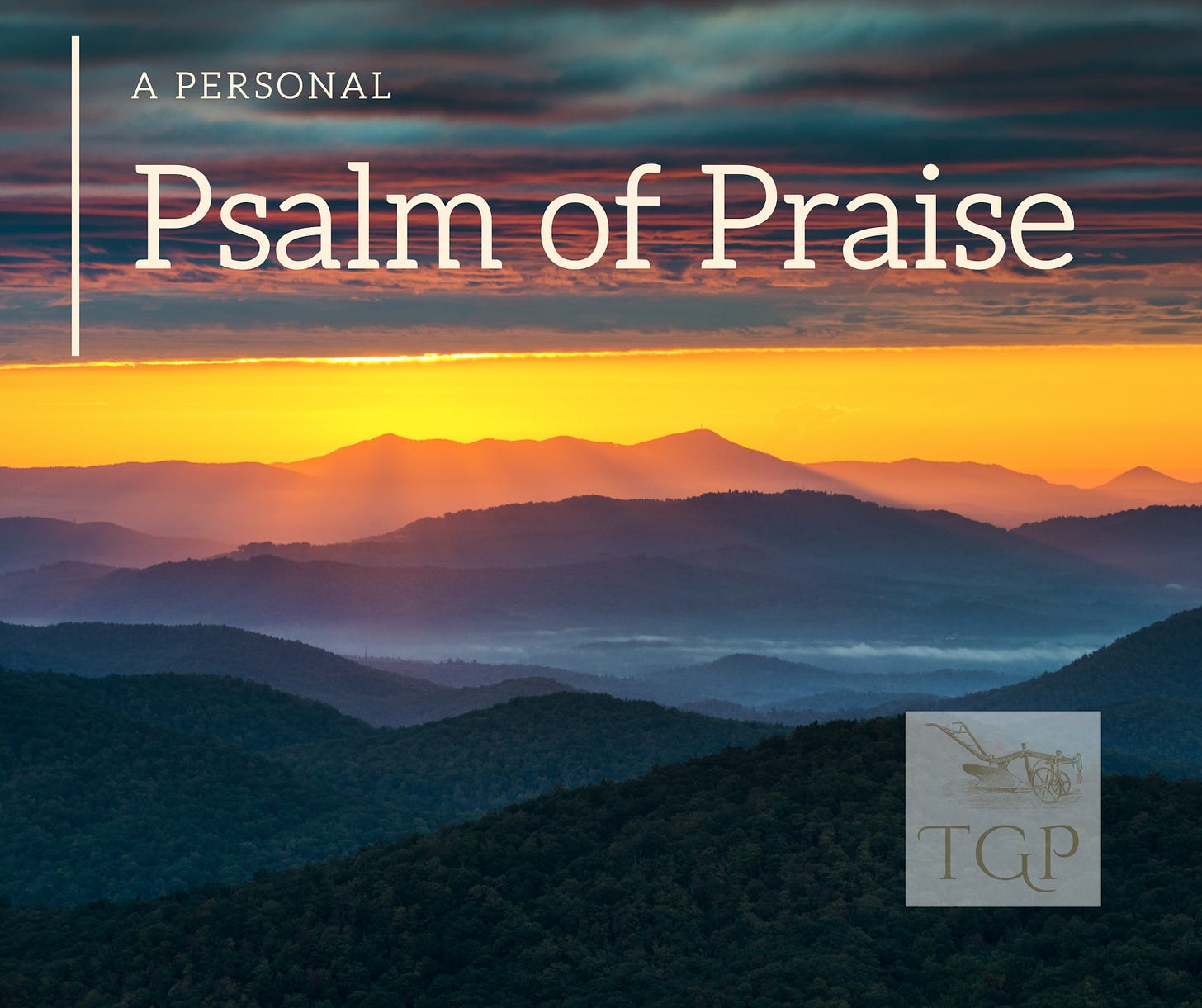A Psalm
A personal psalm written as part of Old Testament & Christian Leadership
1 O Lord, you have formed all that is;
With your gracious and generous hand, *
You shaped the land and all that depends upon it.
2 More ancient than the oldest mountains,
More vibrant than the newest star; *
Your creation recounts your story
As the earth’s forever-maker.(1)
3 You laughed, and the mountains rose up like ripples.
Because of your timeless mirth,*
the streams found their courses,
And rivulets a path.
4 As the fish leap at mosquitos above the waters,
And the bear-cub bats a branch, *
You delight in the stuff of creation;
Its expanse and variety.
5 You teach the joy found in purpose,
The delight of fellowship,
With people and with all creation; *
Matins with Wood Thrush and Warbler,
Summer Evensong and night-talks to the sound of chirping frogs.(2)
6 I am among your creatures, Lord.
When I am lost to myself, *
You know exactly where I am found.
You are never far,
Though my distance is uncountable.(3)
7 Teach me to take account of your goodness
Like the birds greet the morning *
Remind me to take your offered blessing
Like a cat jumps on a lizard’s tail,
a puppy on the legs of a child.(4)Notes
While this Psalm is not structured via an alphabet, in keeping with Dr. Davis’ sermon “The Alphabet of Adoration,” I was attempting to follow a sort of mental progression from the general (all things) to the more specific, the place where I started my life, the mountains (I was born and raised in Asheville, NC). I had memories of the Appalachians (I’m told, among the oldest mountains in the world) in my mind as I wrote, and I added verses as memories and images unfolded.
The second half of this verse has a double meaning for me–memories of praying the daily office on my porch, or other porches, and listening to the dawn chorus, or alternately, the crickets and frogs in the evening. On the other hand, the sounds of the woods, pond, or lake strike me as being like Morning or Evening prayer. This seems to me to be a reminder of something that Howard Thurman talks about, when he says that the idea that all of our lives are lived under the scrutiny of God is not necessarily a religious idea, that “if we examine our lives in detail, we will discover at the level of the personal history of the individual this fundamental idea has meaning and significance” Thurman, Thou Hast Searched Me, available from thurman.pitts.emory.edu.
Psalm 139 is a favorite of mine. I have read it in the midst of numerous pastoral situations. While I had not yet read all of today’s assigned readings when I wrote the psalm, I know 139 was in my mind–at least thematically–as I wrote these verses. “Where can I go then from your Spirit? Where can I flee from your presence?”
Murrell, Shannon, and Adamo indicate that the Psalms were not written in a systematic way and that they “arose impromptu from a variety of individuals’ situations in life…as they lived, encountered, and negotiated both life’s traumas and life’s pleasantries. This psalm fits that categorization, in that I did not set out to write a particular kind of psalm, but instead let my mind flow prayerfully as I reflected on what came most immediately to mind to give God praise for.
Bibliography
Murrell, Nathaniel Samuel, David T. Shannon, and David T. Adamo. “PSALMS.” In The Africana Bible: Reading Israel’s Scriptures from Africa and the African Diaspora, edited by Nathaniel Samuel Murrell, Hugh R. Page, Randall C. Bailey, Valerie Bridgeman, Stacy Davis, Cheryl Kirk-Duggan, Madipoane Masenya (ngwan’a Mphahlele), and Rodney S. Sadler, 220–36. 1517 Media, 2010. https://doi.org/10.2307/j.ctv19cwbj9.43.
“Alphabet of Adoration”, Sunday Morning Worship Service - 8/6/23 - Dr. Ellen Davis, accessed October 19, 2024,



